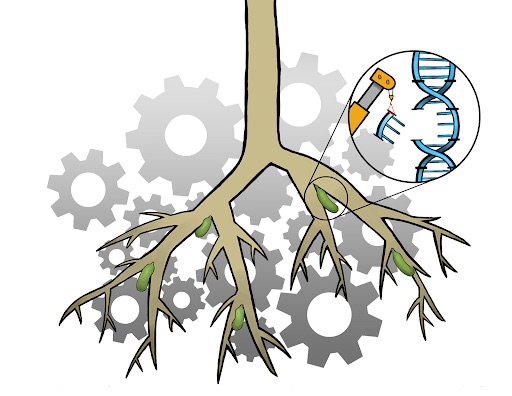
The development of organisms through genetic engineering rises steadily in popularity each year. Although it is a controversial area in science, much of scientific progress has resulted from genetic engineering.
UW has its very own design team solely focused on synthetic biology. This team takes on real world problems and designs methods to solve them through genetic engineering. This team is iGEM, which stands for international Genetically Engineered Machines.
“iGEM is an international group of different research groups at undergraduate, graduate and even high school levels,” said Ana Fernandez, a member of the iGEM Human Practices sub-team. “It focuses on doing research on different aspects of synthetic biology.”
The team consists of three sub-teams: Lab and Design, Math and Modelling and Human Practice.
The Lab sub-team focuses on the design, creation and testing of the biological aspects of the project.
The Math sub-team determines the efficiency of the project by analysis and then uses bioinformatics to provide improvements.
The Human Practices sub-team ensures that the guidelines for scientific ethics are being met.
They are also responsible for communication with the specialists helping to gather facts.
“The way [iGEM] works is that every team develops a project every year, and then you work on that project through the course of the year, all aspects of it, the math side, the human regulatory side, and the lab side,” Fernandez said .
Annually, the iGEM team develops a project and presents their idea at a competition in Boston known as the Giant Jamboree. This competition also provides a platform for the members to interact with other teams and discuss ideas.
iGEM was initially started at MIT on a small scale and is now at an international level with over 300 iGEM teams from all over the world participating.
Last year, iGEM worked on a project they named “Rooting for Symbiosis”.
In Canada, agriculture is very important, and in Canadian agriculture, soybeans are important. Due to the recent surge in the use of pesticides, the formation of root nodules, an essential component of healthy soybean growth is inhibited.
“What we were working with this year, is engineering rhizobia, which are a group of bacteria that live in soils,” said Clara Fikry, the co-lead of the Lab and Design sub-team.
iGEM proposed a way using genetic engineering to alter rhizobia, a microorganism, in such a way that they interact with the roots of the soybean plant despite the presence of herbicides, which would normally disrupt their ability to form root nodules.
Root nodules give the crop nutrients and nitrogen that are needed for it to grow. This project earned iGEM silver standing.
iGEM is also a student led program through and through. Although supervisors are present, they are only there for advice and emergencies. The team is led by students and the projects are thought of and planned by students. Experiments are also developed by the students. They run them and figure out solutions to encountered problems on their own.
Although not the iGEM goal, the development of these projects may eventually lead to the formation of a product.
“Generally speaking, that’s not the goal of our team,” said Fikry, “it’s not about the product itself—it’s more about the process of giving students the opportunity to experience hands on learning”
Another interesting project proposed and developed by iGEM is E. colight. To make E.colight, they engineered the bacterium E. coli, to emit light, creating a biofriendly light.
Every year, at the start of the winter term, iGEM recruits new team members.
They accept team members from every faculty, and provide basic training for each sub-team. Each sub-team has a different application process for those interested in applying. They will be having an information session on Jan. 14.
They will also be sharing details on their social media;
Twitter, @Waterloo_iGEM,
facebook: @WaterlooiGEM and
Insta: @waterloo.igem.































